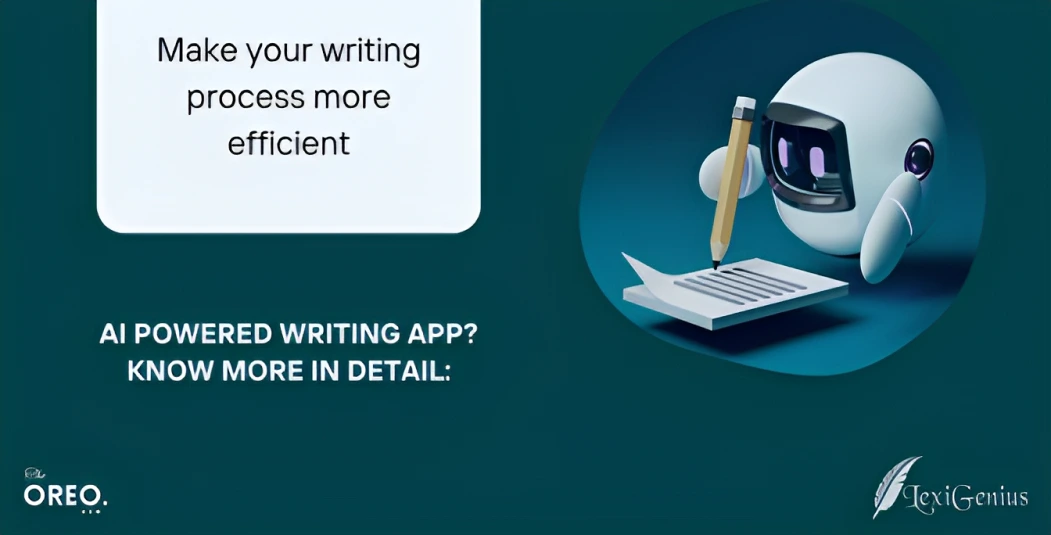Latest Study Shows AI Can Read Human Brain, Decipher and Write Their Thoughts!
Can humans read minds? No. But, can AI?
According to a latest study conducted by Jerry Tang, a doctoral student in IT and Alex Huth, an assistant professor of Neuroscience and Computer science at UT Austin Semantic Decoder, which is an AI system that works on ChatGPT, and Google Bard’s models, can actually decode a person’s brain activities and write it into text. It can basically read a person’s mind!
This study was published on Monday in the Nature Neuroscience journal. The shocking news is, AI could decipher the thoughts of the people without any internal brain implant or surgery, it just caught the brain waves and was able to type their thoughts.
Do you think this is for a great cause as it may help people with paralysis, strokes, coma, and other disabilities convey what’s on their mind?
Before revealing any further, let’s go through the study, what was it and how was it conducted?
The Study
In this study, three participants listened to stories while their brain activities were recorded using MRI machines. Scientists claim that they were able to produce the text of the participants’ thoughts without the need for any brain implants, marking a major breakthrough in the field of mind-reading technology.
However, the generated text only captured the main points of their thoughts and not their entire thinking.
The actual stimulus aka thoughts were somewhat a bit different from what the AI was able to decode. Like in this instance, the person thought “I got up from the air mattress and pressed my face against the glass of the bedroom window expecting to see eyes staring back at me but instead finding only darkness”. And the decoded text was “I just continued to walk up to the window and open the glass I stood on my toes and peered out I didn’t see anything, and looked up again I saw nothing”.
The texts make the exact sense and this is the most thrilling yet terrifying news.
This significant achievement has been made in the field of neuroscience without using any techniques like brain implants, which marks a notable advancement compared to previous efforts. The findings have been documented in the scientific journal Nature Neuroscience. It’s an exciting time for neuroscience, and this innovation could pave the way for future discoveries that will transform the way we interact with our brains.
How Can This Research Help Humans?
This research can have a significant impact on various aspects of human life. Here are some potential benefits that humans might get out of it:
1. Improved healthcare:
AI that can read minds could aid in diagnosing mental health disorders and neurological conditions, such as dementia or Alzheimer’s disease, at an earlier stage. This would enable healthcare professionals to provide better treatment and care.
2. Enhanced communication:
AI that can read minds could help individuals with speech and hearing impairments to communicate more effectively. This could include people who have suffered a stroke or have other conditions that affect their ability to speak or hear.
3. Increased productivity:
AI that can read minds could help people with demanding jobs, such as pilots or air traffic controllers, to stay focused and alert for extended periods. It could also help individuals with ADHD or other attention disorders to stay on task.
4. Improved education:
AI that can read minds could help educators to understand the thought processes of their students better, enabling them to tailor their teaching methods accordingly. This could result in improved learning outcomes for students.
5. Enhanced entertainment:
AI that can read minds could create more personalized and immersive entertainment experiences. For example, it could enable video game developers to create games that respond to a player’s thoughts and emotions in real-time.
Overall, AI that can read minds has the potential to transform the way we live, work, and interact with technology. However, there are also ethical and privacy concerns that would need to be addressed to ensure that this technology is used responsibly and for the benefit of humanity.
Does this raise a concern for mental privacy?
Even though AI can help humans in many aspects its MIND-READING ability does raise some concerns.
Researchers and Scientists believe this technology can become highly dangerous if it falls into the wrong hands. AI can literally do unauthorized surveillance or even invade mental privacy of a person.
Honestly, technology is growing at the speed of light and if no proper measures and precautions are taken the fears might come true.
People who have seen this technology work, and have actually created it, are regretting it. In the words of Elon Musk – artificial intelligence can potentially lead to “civilization destruction,”. And recently Geoffrey Hinton, the person who is known as the “Godfather of AI” has quit his job at Google saying he regrets his work and states this AI can be far more dangerous than we expect.




I have to thank you for the efforts you have put in writing this site. I really hope to view the same high-grade content by you later on as well. In fact, your creative writing abilities has inspired me to get my very own blog now 😉
Hi every one, here every one is sharing these knowledge, therefore it’s nice to read this blog, and I used to visit this web site
everyday.
I know this if off topic but I’m looking into starting my own blog and was curious what
all is required to get set up? I’m assuming
having a blog like yours would cost a pretty penny?
I’m not very internet savvy so I’m not 100% sure.
Any tips or advice would be greatly appreciated.
Many thanks
Hello there, I discovered your website by the use of Google at the same time as looking
for a related topic, your website came up, it appears good.
I have bookmarked it in my google bookmarks.
Hi there, simply was aware of your weblog thru Google, and located
that it’s truly informative. I’m going to be careful for brussels.
I’ll be grateful for those who continue this in future.
Lots of other people will likely be benefited out of your writing.
Cheers!
Incredible quest there. What happened after? Good luck!
I don’t even know how I ended up here, but I thought this post was good.
I do not know who you are but certainly you’re going to a famous blogger if you aren’t already 😉 Cheers!
My brother recommended I would possibly like
this website. He was once totally right. This publish truly made
my day. You can not believe just how so much time I had spent
for this info! Thanks!